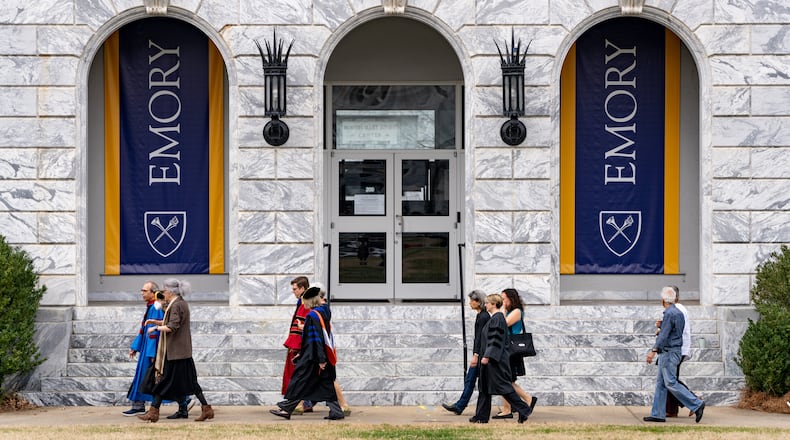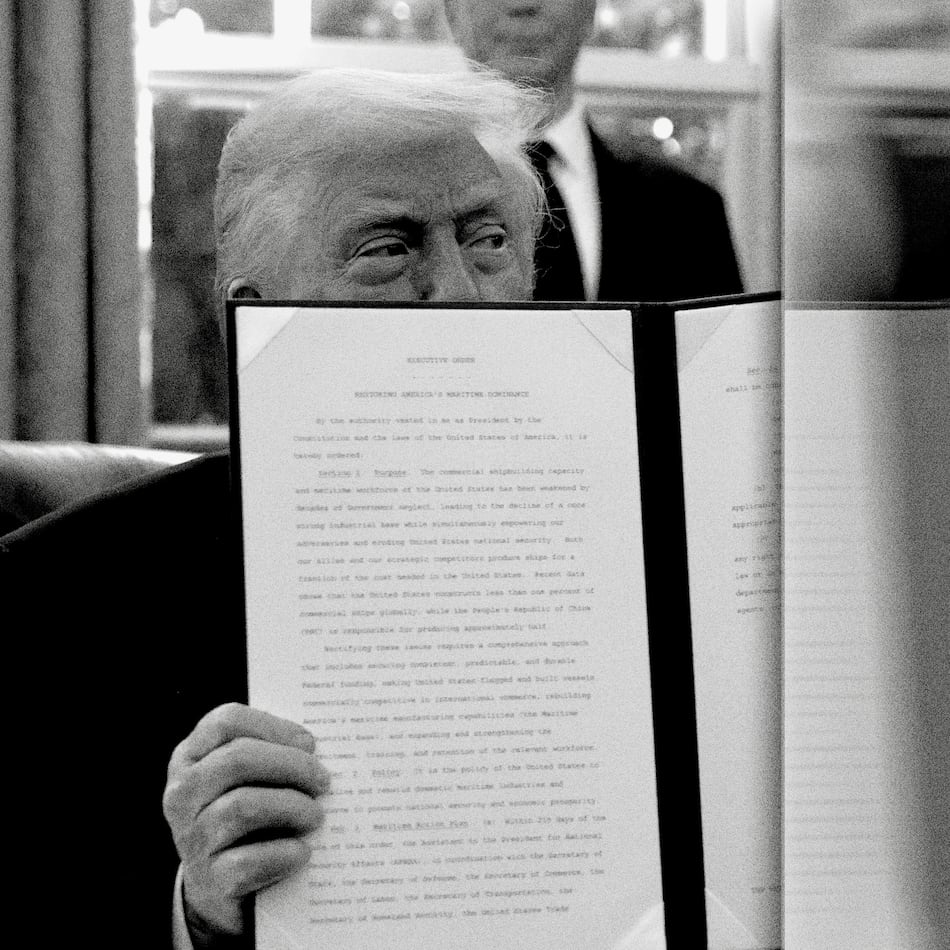In a rare move, faculty members at some of Georgia’s largest universities are asking their administrations to hold the line against what they say is unwarranted interference by President Donald Trump.
Professors at Georgia Tech, Kennesaw State and Emory universities have recently called upon their schools to stand up against any state or federal efforts to curtail institutional autonomy.
“In these unprecedented political times, we watch in dismay as the federal government threatens universities that do not comply with its agenda,” reads a resolution passed by Emory’s faculty senate. “We urge the administration, in dealing with the federal government, to persist in doing what is right, not what is expedient.”
Georgia Tech and KSU, respectively, have the first and third-largest enrollments of any college or university in the state. Emory has the largest enrollment of any private university in Georgia.
The resolutions voted on by each school’s faculty senate vary, but have similar goals. Emory’s specifies the “lines we must not cross”; KSU’s asks its president to establish an “Academic Defense Compact”; Georgia Tech’s urges leadership to increase transparency when making changes.
Despite their different demands and their passage at different times in April, the resolutions reflect the growing concerns many professors nationwide have about the potential loss of academic freedom in higher ed.
“The United States government has engaged in political interference in the affairs of over 60 institutions of higher education by demanding immediate cooperation” on matters of hiring, admissions, student discipline and more, reads the KSU resolution.
After cutting millions of dollars in federal funding that help power American universities, the Trump administration has created an unprecedented predicament for many schools to navigate. Fearful of losing more money, some schools like Columbia University, have attempted to assuage the administration by accepting its various demands. Others, like Harvard University, are fighting back; instead of agreeing to terms that would give the White House significant power over its hiring, admissions and other practices, the school is challenging Trump in court.
While Georgia’s schools have seen many of their federal grants cut, the universities have largely avoided drawing significant attention from the White House. Former Georgia Gov. Sonny Perdue, who oversees Georgia’s public universities, worked for Trump during his first presidential term as agriculture secretary.
But the three resolutions appear to be preemptive measures. Passing with significant majorities, the resolutions from each university faculty senate — bodies that represent faculty interests and traditionally play a key role in university governance — have effectively asked their school to reaffirm their commitment to academic freedom.
Academic defense compacts have been pushed for at universities in other parts of the country, but KSU’s faculty is the first to propose it in Georgia. Their compact aims to unite schools to “commit meaningful support,” such as financial and legal assistance, in a collective response “to attacks by the governmental actors on any member institution.”
To become a reality, the compact would have to be endorsed by KSU President Kathy Schwaig. The university did not respond to a request for comment.
After seeing some of its diversity, equity and inclusion programs restructured, Georgia Tech’s asks that the school uphold its current antidiscrimination policy. Additionally, the resolution asks the school to, “Affirm that academic freedom affords faculty full freedom in research and in the classroom.”
Georgia Tech said it supports the faculty’s resolution and “appreciate(s) their reaffirmation of our shared commitment to academic freedom, freedom of expression, and to fostering an open, welcoming environment for all members of our community.”
“We share their belief that students thrive when they are met where they are, and we fully support continued investment in the programs and services that empower every student to succeed,” spokesman Blair Meeks said in a statement.
Emory spokeswoman Laura Diamond called academic freedom a foundational principle. “Emory will not shy away from defending it,” Diamond said in a statement.
Neither school said if they planned to take any specific actions.
In their resolution, Emory faculty said the university should be flexible in considering “any reasonable and legitimate concerns.” Still, they cautioned against too much flexibility. Caving to extreme government demands could bring a university temporary benefits, the authors wrote.
“But it will have sacrificed its soul,” reads the resolution. “Emory must act now so that when we look back ten years from now, we feel pride, not shame.”
About the Author
The Latest
Featured


